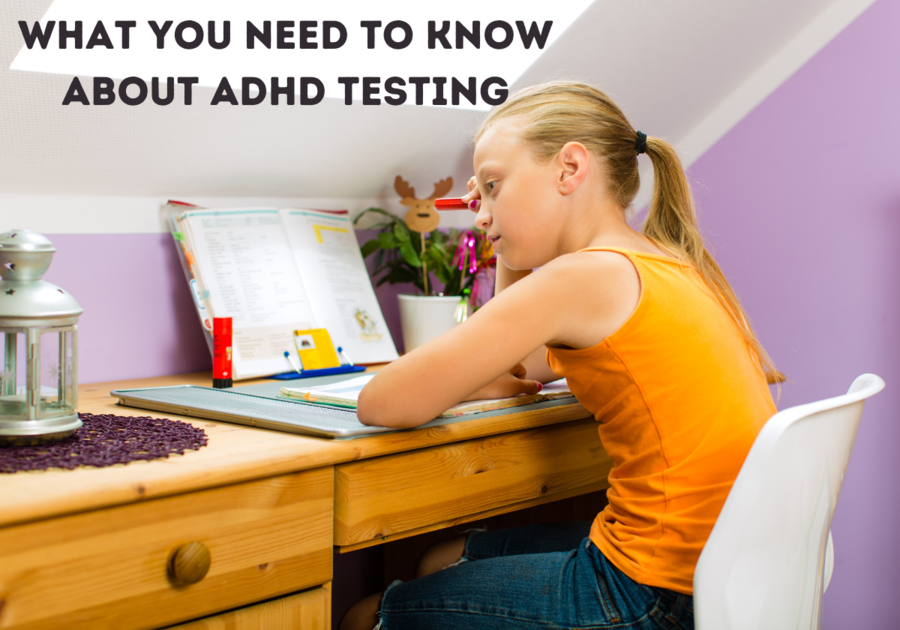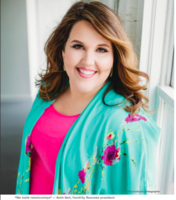So you think you or your loved one may have Attention Deficit Hyperactivity Disorder (ADHD)? Are you considering ADHD testing to get a firm diagnosis? It can be hard to know where to begin, who to consult and what to say to a primary care doctor, psychiatrist, or therapist.
Let’s a address one thing first, the biggest mindset shift you will have make is this: Our modern world is not set up to help, carry or hint at success for ADHDers (more than 60% incarcerated individuals have an ADHD diagnosis). So it is your job as a parent, spouse, or a fellow ADHDer to position yourself or your child for success, daily.
Attention Deficit Hyperactivity Disorder is characterized by those who may have shown a persistent pattern of inattention and/or hyperactivity/impulsivity, that interferes with daily functioning or development (read: school, home, socialization).
What to expect from testing
Testing can look very different depending on who you go see for the problem. So here are your options from “Good”, “Better” “Best”; however this is all dependent on the severity of the ADHD. If it’s palpable then the good option may be perfect for you and your loved one.
Good:
A good place to start is with a pediatrician or primary care doctor. Typically, the meeting is 15 minutes, and they will probably give you an assessment for you to fill out. It will be 50 or so questions asking you to answer on a scale from 1 to 5. They may give you a copy for a child’s teachers if it’s applicable. The reason this falls under the “good” option is because they may not do any of this, and no one should be diagnosing anyone in 15 minutes, plus, 1 assessment isn’t always enough. Additionally, I’ve heard stories from clients saying their doctor told them they were too old to be tested; so you might be dealing with some flat out ignorance.
Better:
Going to a counselor or therapist that specializes in ADHD. The way this option will play out is the counselor will send you multiple assessments to fill out beforehand and have them scored before the first appointment. At the first appointment they will take an oral history of the client from parents, or significant others, and then take an oral history for the person suspected of having ADHD. At the end of the session, most likely they will have enough information to make an informed diagnosis.
Best (maybe):
What may be the best option is go seek out a School Psychologist or a Psychiatrist. The reason being is the testing is even more in depth and they most likely are not just looking for an ADHD diagnosis, but also for co-occurring issues, like learning disabilities, anxiety, depression symptoms and the like.
The reason for labelling this as a “maybe” is like I said before. Your child or loved one may have palpable ADHD, they may be the poster child for ADHD and might not need such in depth testing. However, ADHD sometimes does not present in outward behaviors but in what is going on in the person’s mind; this is especially true for girls and women.
What to do before and after testing
Here’s a quick breakdown of treatment before you can get a formal diagnosis, or if you have one, what you can do before your first session with a therapist!
- Get educated
- Give education (to teachers, bosses, your spouse and finally your child)
- Begin identifying your ADHD superpowers and your ADHD kryptonite’s
- Find a specialist
- Address the emotional pitfalls placed upon you by life experiences and society (remember the REAL disorder is the stigmas placed on ADHDer’s)
You may also be interested in: The Top 5 FAQ’s about Testing for ADHD
About the Author:
Gabriel Villarreal, is a Licensed Professional Counselor in the state of Virginia. He owns LostBoys Strength & Conditioning, the only gym that offers coaching to children with special needs such as ADHD, ASD, Depression, Anxiety and other mental health disorders. Additionally, with his private practice, ADHD Counseling in the Roanoke Valley he coaches the only class in the country specifically for ADHDers, designed to give them the medicine exercise offers. Gabriel is an expert in the topic of exercise and mental health, is routinely asked to speak to gyms, coaches, athletes and educators, in the Roanoke Valley and beyond, on all things exercise and mental health.



